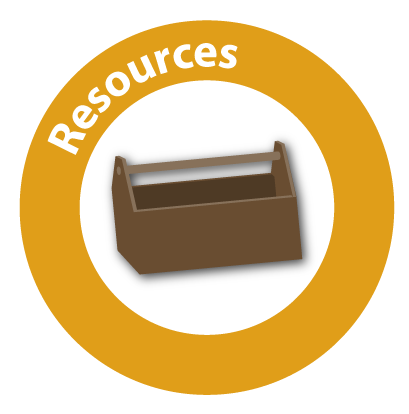
| | Resources and Frequently-Asked QuestionsFind resources to help your family or get answers to frequently asked questions. Resources
OrganizationsCounty Boards of Developmental DisabilitiesEach county has its own board of developmental disabilities. Some county boards offer free behavior support services to eligible individuals. Mobile Response and Stabilization Services (MRSS)Families with youth and young adults up to age 21 who are experiencing difficulties or distress can receive assistance within 60 minutes after contacting MRSS. You may also receive up to 42 days of intensive, in-home services and linkage to on-going support.
OhioRISEOhioRISE provides care management and funding for youth (0-20) with significant behavioral healthcare needs. To access OhioRISE, families with children between the ages of 0-20 must request a Childhood Assessments of Needs and Strengths (CANS) from their local Care Management Entity (CME).
Frequently Asked QuestionsClick the questions below to see answers to frequently asked questions. ▸ What are the four functions of behavior? What does that mean?Many behavior experts believe that there are four main purposes (“functions”) of behavior. They are:
Families and behavior experts often use ABC charting or a Functional Behavioral Analysis (FBA) to find out what the function of a behavior is. The function is important, because it helps to decide the right strategy for teaching a child to manage or change their behavior. Example: Ignoring a child who throws homework for attention might stop the behavior. The child no longer gets attention, so the child stops throwing. On the other hand, ignoring a child who throws homework because they’re frustrated and trying to escape is unlikely to solve the problem. For more on functions of behavior, see this article from Child Mind. ▸ My child was kicked out of daycare. What should I do?When children are regularly aggressive or destructive, daycare providers may choose to terminate service with a family. When this happens, there are a few steps you can take: First, think about your child’s strengths and needs. What will help your child thrive? Some of the things you may want to think about include group size, staff ratio, the types of activities offered and how much support will be provided. Starting Point offers other resources to help you think about your childcare needs. If your child is older than three years of age, preschool may also be an option. Families with children who are served by Help Me Grow or Bright Beginnings will begin to talk about their child’s preschool transition within 6-12 months of their third birthday. If your child is not enrolled in early intervention services and you suspect a disability or developmental delay, contact your home school district for an evaluation. While preschool is unlikely to cover all of a family’s childcare needs, a few hours each day can help. Once you have an idea of what your child needs and what you can fill with other resources like preschool, contact organizations like Starting Point (Cuyahoga County) or the Child Care Resource Center (Lorain County) to find providers. If you have decided that daycare no longer meets your child’s needs, you can look at nannies and sitters with websites like Care.com or Sittercity.com. ▸ My child has a disability - can a daycare still kick them out?Sometimes children bite, kick or hurt others or run away (elope) from daycare. When this happens, daycare staff should first work with the family to manage behavior. If the child has a disability, working with the family to manage the behavior is called “reasonable accommodation.” If you live in Cuyahoga County and your child is eligible for services with the County Board of Developmental Disabilities, you can also contact your service and support administrator to request a community behavior support consultation. This support can help train daycare staff to better support your child. Some community mental health agencies will also work with daycares to help them make reasonable accommodations. You can learn more about the Whole Child Matters initiative online or schedule an Ask Us call to find local providers. When reasonable accommodations don’t work, the Americans with Disabilities Act (ADA) allows daycares to expel children who pose a “substantial threat of serious harm to themselves or others.” To learn about next steps you can take, see “my child was kicked out of daycare - what should I do?” above. ▸ My child is having behavior problems at school. What should I do?When children have behavior problems at school, it’s important to keep communication open. Many school behavior challenges are resolved quickly when families and teachers work together. When students have behavior problems at school, there are supports that can help. The Guide to Understanding School Discipline introduces families to some of the ways schools help children to manage or change problem behavior. If a child with a disability is suspended or expelled from school for a disability-based behavior, the child may have the right to a Manifestation Determination Review (MDR). For information on MDRs, see the Disciplinary Removals section of the Guide to Understanding School Discipline. ▸ I sometimes feel myself getting really upset with my child’s behavior.If you’ve ever lost your cool, yelled or delivered a consequence that you immediately regretted, you’re not alone. Every parent becomes angry, embarrassed or just plain overwhelmed with challenging behavior at some point – and it’s easy to let our emotions get the better of us. The first thing to know is that you are human and these kinds of things happen to all of us! One of the best ways to keep our emotions in check is to slow things down. Our guide, “How to Stay Calm When Your Child is Out of Control” teaches four easy steps you can use to slow things down and reframe the situation. It’s also important to take care of yourself in the longer term. As parents, we tend to snap when our own buckets are running low! You can find some tips for this in our how-to guide or join us for a Share & Support Group Program where you can get some support and learn new coping tools. ▸ I’ve tried to potty train my child but it’s not working. What can I do?For many children, toilet training happens somewhere between the ages of 2 and 4 years old – but this isn’t the case for every child. Children with sensory differences may not understand messages from their bodies, while children with attention, executive function or cognitive disabilities may struggle to complete all the steps. Children with anxiety may fear using the toilet or become fixated on avoiding accidents. Finally, children with physical disabilities may need support or modifications to be successful. All of these things don’t necessarily mean that your child will “never be toilet trained” – they only mean that the experience will be unique to your child. Some of the resources families have used to help toilet train their children include:
▸ Is my child having a tantrum or a meltdown? What do I do about it?Tantrums are usually goal-directed. You may have noticed that a tantrum will stop as soon as your child gets what they want. That’s also because children have some control over their behavior during a tantrum. On the other hand, meltdowns are connected to your child’s fight/flight/freeze response. They are often triggered by sensory overload and are hard to control. The podcast, Managing Meltdowns, offers introductions to meltdowns and tantrums and teaches parenting strategies to help. Families who are concerned that their child is experiencing meltdowns may also benefit from consulting an occupational therapist to discuss their child’s sensory needs. |
Back to Behavior Guide.
